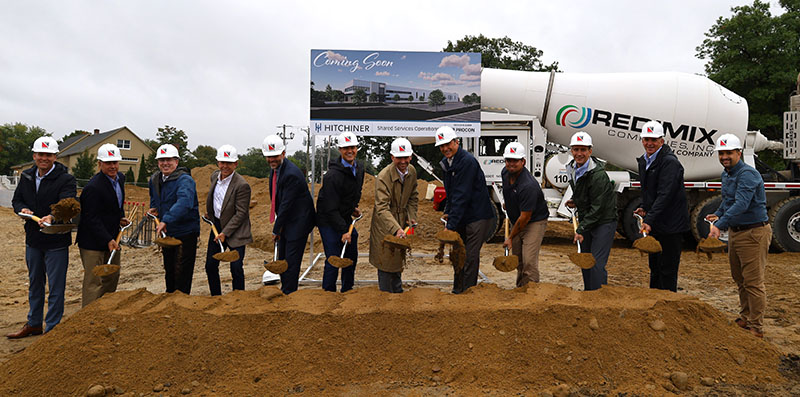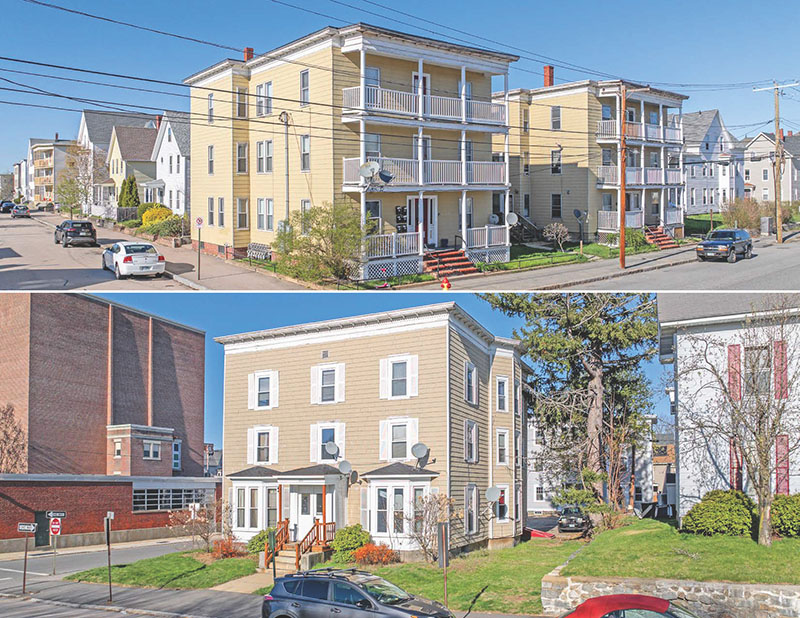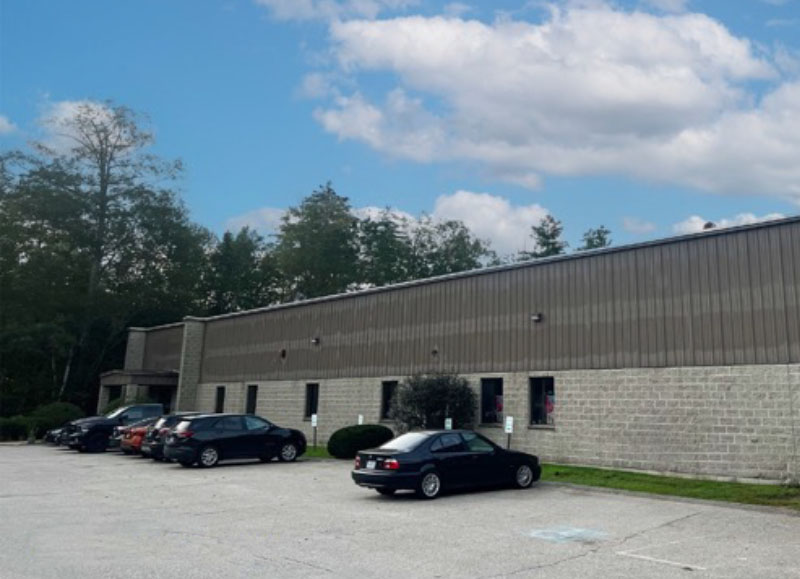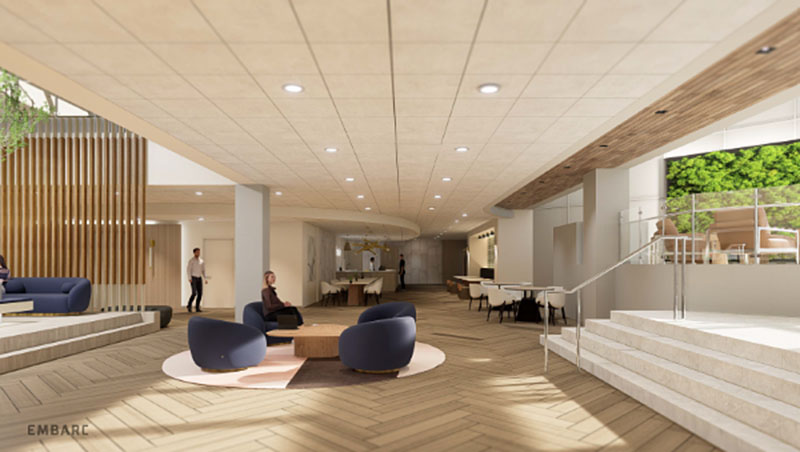In adversity there is opportunity - by Bill Norton

It is the first day of fall. The weather has turned cooler and we are finally getting some rain. The primaries are over, and the mid-term elections are seven weeks out. Billions of dollars will be spent, much, if not most of it wasted (in my humble opinion). For example, perhaps more than $200 million will be spent on the Maggie Hassen/Don Bolduc senate race with less than $10 million raised in New Hampshire. If I were King for a Day, I would limit spending to $2.5 million for each candidate, have them stump in the state for eight weeks and then we would vote! Alas, things are no longer that simple.
Beyond the elections, we have the deteriorating economy, rapidly rising inflation, rapidly rising interest rates, “post” COVID strategies, the fall flu season, the war in Ukraine... What is the current status of commercial real estate (CRE) this fall season? Of all of these things listed above–rapidly rising interest rates (trying to snuff out inflation above 3-4%) is the most impactful. For 18 years we saw low/very low interest rates, caused by lots of money chasing too few deals and investments. There was some “financial engineering” going on, specifically The Fed trying hard to maintain its 2% annual inflationary target. While that might be a viable short-term goal (5-6 years) it is unrealistic to have it stretch 10+ years.
Is the COVID pandemic the cause of letting the inflation genie out of the bottle? Or just a catalyst which precipitated what was going to happen eventually anyway? The latter is the case. For years energy and food prices were not included in the CPI calculations because they were so “volatile”. I have never understood this because who can live in America today without energy or food?
For those who have prospered over the last 18 years, many have salted away “wealth” that will help them cope with the sudden high inflation. But for middle- and lower-income families without significant savings, they do not have a cushion. Food costs, gas costs, electricity bills, you name it, these are all daily, weekly and monthly expenses. So, household budgets are stretched to the breaking point.
As I walk around my neighborhood on my morning walks, I can see five or six households who have overreached, paying too much for their house and borrowing too much while not comprehending that their over asking price bid is going to raise their property assessment which is going to raise their real estate taxes...all of which is compounded by some of the highest energy rates in the country (UNITIL is over 28 cents/kwh soon to go to 40 cents, and Liberty Utilities is over $2/ therm). With the overall economy stalled or stalling, recession clouds on the horizon and political mid- terms riling everyone up, a slowdown (aka recession) is very likely and soon. The Republicans would love for this to happen in President Biden’s remaining two years in office.
In fact, we have staved off economic corrections starting the Great Recession of 2008-10 and more recently with the COVID pandemic relief where we (the government) have printed and spent hundreds of billions of dollars (remember $1 trillion is 1,000 billion dollars!). These were justified when the interest rate on U.S. treasuries was low (most in the 2% range) but those rates are rising fast (4% on a three-year treasury). Current interest on the national debt (deemed to be somewhere around $27 trillion) is $400 billion this fiscal year. This might double if inflation keeps pushing rates up.
So, there is a reckoning coming for recent past sins. While it is possible “the government” could reflate the economy one more time with more stimulus money, that is likely the final time before we have to start moving toward a balanced budget of some sort. Keep in mind, since the Great Recession we have been running a “structural” deficit of $1 trillion on our annual operating budget which means we are only funding $3 out of every $4 we are spending (best case!). Recently there has been quite an uproar over President Biden forgiving some student loan debt (several billion $ but not a trillion $).
So, sugar it down and we see higher interest rates here to stay for several years. This will slow commercial transactions. Property values, especially of homes and condos are likely to stall and then retract. This may take a while as there are still a lot of cash buyers in the market and the demand for housing is acute. People wanting a roof over their heads are paying more than they can afford now or soon when the economy slows and contracts. Builders, developers, bankers, lenders, appraisers, etc. all are guilty of watching house, condo, and apartment values inflate far faster than the economy overall. There will be a “re-set” and likely soon. First to be affected will be those with variable rate mortgages that reset every 3,4, or 5 years. One neighbor has a 2.6% mortgage that will reset in five months to 6.5% +/- with a $250,000 balance. That is a big monthly jump.
In the commercial world, think office buildings, manufacturing and warehouse space, retail, hotels, etc. typical loans “balloon” in 10 years (become due and must be re-financed to current rates). Many such loans are in the 2’s (2-2.5%) now but will go to 5,6, or even 7% not on $200,000, but more like 2,3, $4 million!
Could there be an upside to a recession for commercial real estate? The answer is yes. A recession should “cool” the economy – slowing inflation and putting a check on the booming pricing we have been experiencing. However, the $24 sheet of ½” plywood which is now selling for $56 is not going back to $24 but should settle out at $40-$42/sheet. More stability in construction costs (and better supply due to less demand) is a good thing.
Unemployment and more importantly employment (finding workers to fill vacancies) is currently an enigma. Where did the workers go? Many are still out there waiting for childcare costs to come down, or COVID concerns to dissipate, or companies to get more friendly and treat employees civilly again.
This current inflation has been called a pandemic economy (shortages leading to price hikes – daily, weekly, monthly). The changes to the economy were accelerated by the pandemic. A year or two from now we may not be back to 2018/19 (pre-pandemic). One key example is work from home. This was an emerging trend in 2018/19. Through the pandemic it was forced upon us. Now we are seeing “hybrid” and other models. It is highly unlikely that we will all be back to work in the office five days a week. The biggest impact is on owners of office buildings. We have five office tenant clients, all of whom do not need as much space, they want to shrink their footprints, but they are being cautious as they are not sure what that means–20%, 30% more? All to be determined, a work in process. Many office building owners are wanting to redevelop to apartments and condos. Some buildings adapt easily while others do not. It is not a panacea.
So, a sea of change is upon us, after all it is hurricane season! Some “storms” will hit us head-on, while others may give us a glancing blow, and some will miss us all together. Two final thoughts: In adversity there is opportunity, and it is a shame to waste a good recession.
Bill Norton, CRE, FMA, Hon. AIA NH, is president of Norton Asset Management, Inc., Manchester, NH.
PROCON and Hitchiner break ground on 57,000 s/f shared services operations facility








